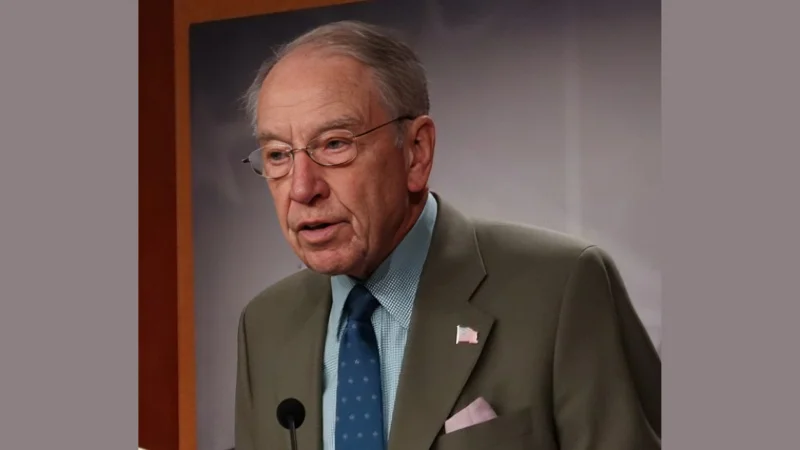Senate Judiciary Committee Chairman Chuck Grassley and House Judiciary Committee Chairman Jim Jordan have contacted Supreme Court Chief Justice John Roberts about recent anonymous public statements made by federal judges criticizing the Supreme Court. The two lawmakers expressed concern that such comments could undermine public trust in the judiciary and may violate ethical guidelines.
The letter from Grassley and Jordan comes after reports that some federal judges described the relationship between the Supreme Court and lower courts as a “war zone” and accused the high court of “undermining the lower courts.” These remarks were made anonymously to members of the press.
In their communication, Grassley and Jordan stated, “As the Chairmen of the Committees on the Judiciary in the United States Senate and United States House of Representatives, we preside over the congressional committees with legislative and oversight jurisdiction over the federal courts. We are deeply concerned that these public attacks on the Court from sitting federal judges damage the public’s faith and confidence in our judicial system. When judges call into question the legitimacy of their own branch of government, they erode faith in the institution itself.”
The chairmen asked Chief Justice Roberts whether these statements violate provisions within the Code of Conduct for United States Judges. They also requested information on any plans by the judiciary to investigate or address this conduct.
“We urge you to consider the appropriateness of these public yet anonymous comments and whether they breach the ethical obligations of all federal judges. While we do not yet know the full extent of the comments or who the judges are, we remain convinced that judges should not be going to the press to undermine and denigrate the Supreme Court,” Grassley and Jordan wrote.
Federal judges must adhere to several canons outlined in their code of conduct. Canon 1 requires judges to uphold integrity and independence, while Canon 2(A) instructs them to act in ways that promote confidence in judicial impartiality. Canon 3(A)(6) bars public comment on ongoing cases.
A related incident occurred in 2024 when Chief Judge Albert Diaz addressed a complaint against District Judge Michael Ponsor after Ponsor published an essay critical of Supreme Court Justice Samuel Alito. Diaz determined that Ponsor’s actions violated Canons 1, 2(A), and 3(A)(6), noting that his essay included personal opinions on controversial issues, criticized another judge’s ethics, and could be perceived as partisan commentary calling for recusal.









